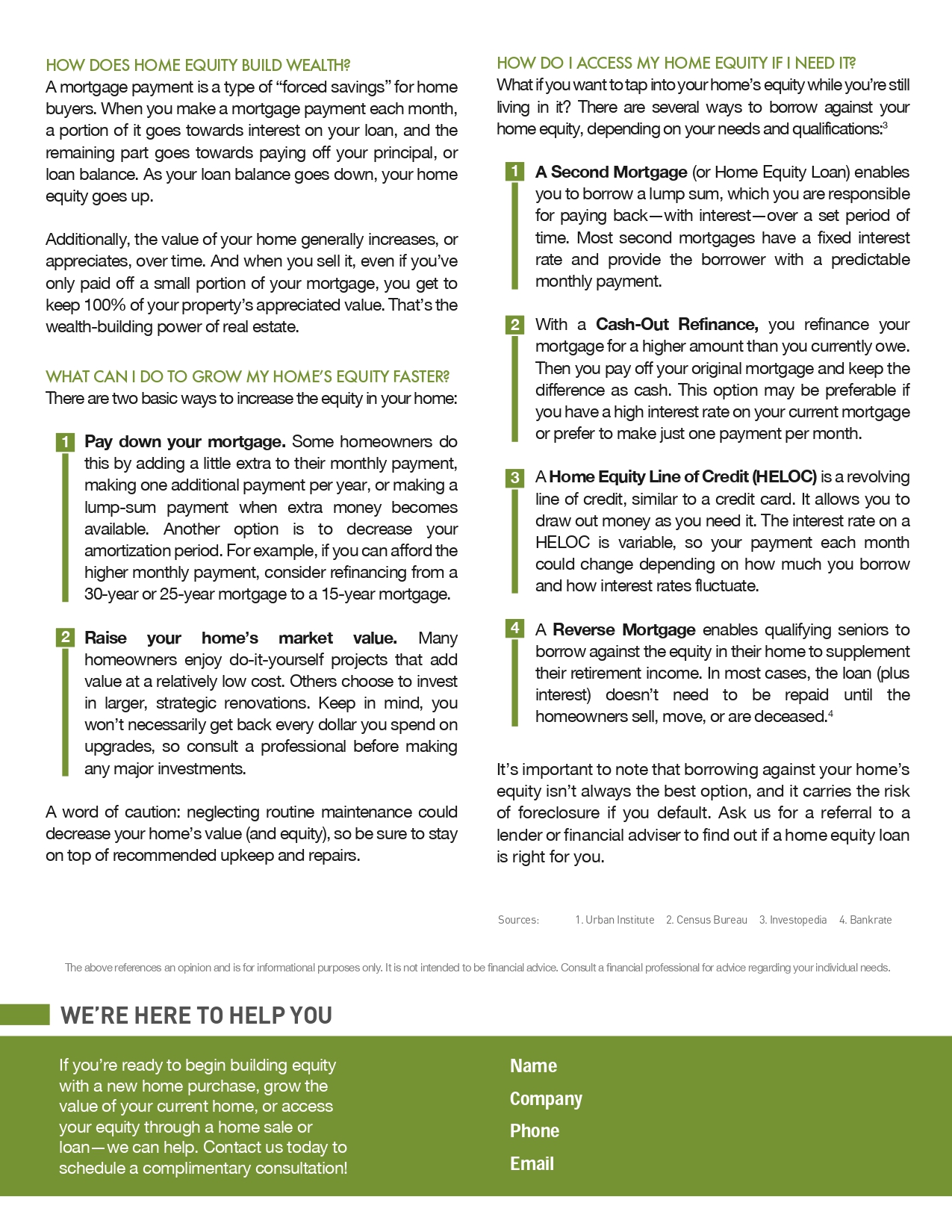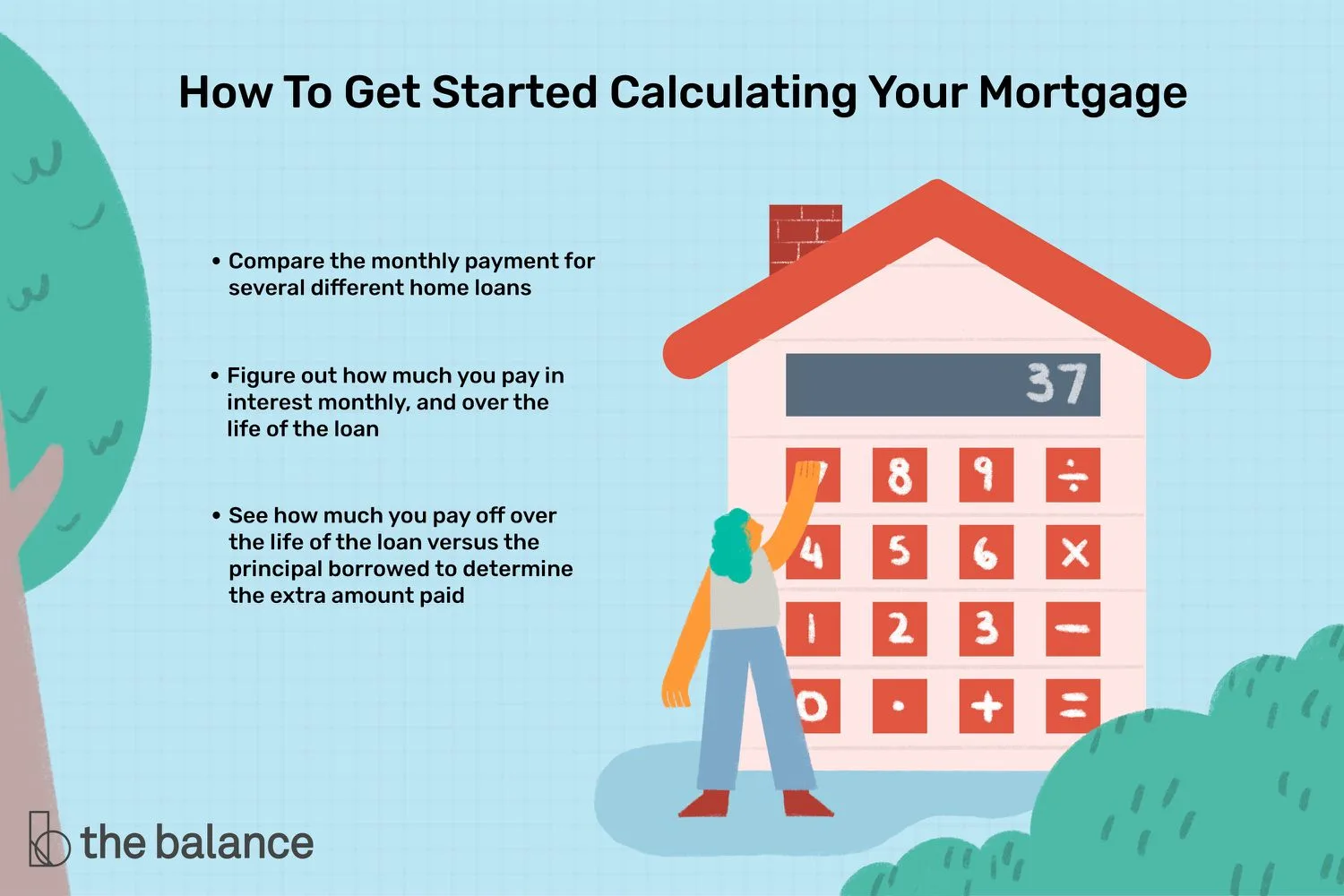What Happens If: Unlock the Power of Paying 2 Extra Mortgage Payments a Year
Paying 2 extra mortgage payments a year can significantly reduce the principal amount owed and shorten the loan term. Owning a home and paying a mortgage can be a financial burden for many individuals and families.
However, there are ways to save money and pay off your mortgage faster. One such method is making two extra mortgage payments per year. By doing so, you can shorten the loan term and reduce the total amount of interest paid over time.
This can potentially save you thousands of dollars in the long run. We will explore the benefits of making these additional payments and how they can impact your mortgage. So, let’s dive in and discover what happens if you pay 2 extra mortgage payments a year.

Credit: m.facebook.com
The Concept Of Making Extra Mortgage Payments
Are you looking for a way to pay off your mortgage faster? Making extra mortgage payments can be an effective strategy. By paying just two extra mortgage payments a year, you can significantly impact your loan term and reap a variety of benefits.
The Benefits Of Paying 2 Extra Mortgage Payments
When it comes to paying off your mortgage earlier than expected, making two additional payments each year can help you achieve your goal sooner than you may have thought possible. Here are some key benefits of this financial tactic:
- 1. Reduced interest costs: Paying two extra mortgage payments reduces the outstanding loan balance, resulting in lower interest charges over the life of the loan.
- 2. Accelerated equity growth: By making additional payments, you are building equity in your home at a quicker pace. This could be advantageous if you plan to sell your property or use it as collateral for future endeavors.
- 3. Freedom from debt burdens: Paying off your mortgage sooner means being free from the burden of monthly mortgage payments. This can provide a greater sense of financial security and freedom to embark on other financial goals.
- 4. Increased savings: With a mortgage paid off earlier, you can redirect the funds that were previously allocated to your mortgage payment towards savings or other investments, allowing your wealth to grow even further.
How Making Additional Payments Affects The Loan Term
Paying two extra mortgage payments a year can have a substantial impact on your loan term. Let’s take a closer look at how it works:
| Current Loan Term | With Extra Payments |
|---|---|
| 30 years | Approximately 23 years and 4 months |
| 15 years | Approximately 11 years and 9 months |
| 10 years | Approximately 7 years and 7 months |
As you can see from the table above, paying two additional mortgage payments a year can shave off several years from your loan term, and in some cases, can reduce it by half. This means you can be mortgage-free much sooner, saving you both time and money.
In conclusion, making two extra mortgage payments a year not only helps you save on interest costs but also accelerates your path to homeownership and financial freedom. It’s a smart investment in your future that can have a significant impact.
Financial Impact Of Paying 2 Extra Mortgage Payments A Year
Paying 2 extra mortgage payments a year can have a significant positive impact on your financial situation. By making these additional payments, you can reduce the overall interest paid and shorten the loan term, saving thousands of dollars in the long run.
This proactive approach to mortgage payments can lead to substantial financial benefits over time.
By making the decision to pay 2 extra mortgage payments a year, you can greatly impact your financial situation. Not only can this strategy help reduce interest costs, but it has the potential to increase your home equity as well. Let’s take a closer look at these two important aspects:
Reduced Interest Costs
One significant advantage of making 2 extra mortgage payments per year is the reduction in interest costs. This is due to the fact that each additional payment you make goes directly towards the principal amount owed on the loan. As a result, you end up owing less interest over time.
To better understand the impact, let’s consider an example. If you have a 30-year mortgage with an interest rate of 4%, making 2 extra payments per year can potentially shorten the loan term by several years. This means you will save a substantial amount in interest payments.
For instance, if your monthly mortgage payment is $1,000, by paying an additional $1,000 twice a year, you would effectively make an extra full payment annually. Taking this path, you could potentially pay off your mortgage anywhere from 5 to 10 years earlier, saving thousands of dollars in interest costs.
Potential Increase In Home Equity
Another advantage of paying 2 extra mortgage payments a year is the potential increase in your home equity. Home equity represents the portion of the property that you actually own, free of any liens or mortgage debt. By making extra payments towards your mortgage, you can build equity faster.
The additional payments go towards paying down the principal balance, which in turn increases the amount of equity you have in the property. This is particularly beneficial if you plan to sell your home in the future, as a higher equity can lead to a larger profit from the sale.
Moreover, having more equity gives you greater financial stability and flexibility. It can provide opportunities for refinancing, getting a home equity loan, or accessing funds through a home equity line of credit (HELOC) in times of need.
Choosing to make 2 extra mortgage payments a year is a proactive strategy that can have a significant financial impact. By reducing interest costs and increasing home equity, you can put yourself in a stronger financial position and potentially save thousands of dollars in the long run.
Practical Strategies For Making Extra Mortgage Payments
Making extra mortgage payments can have significant benefits. By paying two additional mortgage payments each year, you can potentially reduce your loan term and save on interest payments in the long run. This strategy can help you pay off your mortgage faster and achieve financial freedom.
Practical Strategies for Making Extra Mortgage Payments Making extra mortgage payments is a smart financial move that can save you a significant amount of money in interest over the life of your loan. With the potential to reduce your loan term and build equity faster, the benefits are substantial. When it comes to implementing these strategies, there are various approaches that you can consider. Let’s dive into some practical strategies for making extra mortgage payments. H3 headings: Budgeting and Planning for Additional Payments Budgeting and planning for additional mortgage payments is crucial for staying on track with your financial goals. By carefully assessing your monthly income and expenses, you can identify opportunities to allocate extra funds towards your mortgage. Additionally, consider creating a separate savings account specifically for making extra payments. This approach can help you ensure that you consistently set aside the necessary funds without impacting your regular expenses. Automated Payment Methods Utilizing automated payment methods can simplify the process of making extra mortgage payments. Many lenders offer options to set up automatic bi-weekly payments or a fixed additional monthly amount. By taking advantage of these automated features, you can streamline the payment process and avoid the risk of forgetting to make extra payments. Moreover, automated payments can help you stay disciplined and consistent in your approach to paying down your mortgage faster. Incorporating these practical strategies into your financial planning can have a significant impact on your mortgage payoff timeline and overall financial well-being. By committing to budgeting and leveraging automated payment methods, you can effectively manage and prioritize your extra mortgage payments, ultimately saving on interest and achieving greater financial security in the long run.Considerations Before Making Additional Mortgage Payments
Before deciding to make additional mortgage payments, it is essential to consider certain factors that could impact your financial situation. By carefully evaluating these considerations, you can make a more informed decision about whether paying two extra mortgage payments a year is the right choice for you.
Tax Implications
When it comes to additional mortgage payments, it is important to be aware of the potential tax implications. While making extra payments can help you save on interest and reduce your overall debt, it may also affect your tax deductions. In some cases, the interest on your mortgage can be tax-deductible, providing you with valuable savings. However, by paying off your mortgage early, your potential tax deductions may decrease. It is advisable to consult with a tax professional to understand how additional payments could impact your specific tax situation.
Opportunity Cost Of Funds
The opportunity cost of funds is another consideration to keep in mind when deciding whether to make extra mortgage payments. By allocating the funds toward paying off your mortgage faster, you may be missing out on other investment opportunities that could yield higher returns. It is important to evaluate whether the potential savings from paying off your mortgage early outweigh the potential gains from other investments. An impartial financial advisor can help you assess the opportunity cost of funds and guide you in making the most advantageous decision.
Alternate Approaches To Building Home Equity
Building home equity is an important aspect of homeownership, as it provides financial security and opportunities for future investments. While making extra mortgage payments is a common way to build equity, there are alternative approaches that can yield similar or even better results. In this section, we will explore two such approaches: investing extra funds instead of paying down the mortgage and refinancing options.
Investing Extra Funds Instead of Paying Down Mortgage
When faced with the possibility of paying off the mortgage faster, some homeowners consider investing their extra funds instead. This approach can potentially yield higher returns, especially if the investments perform well. By diverting the extra money towards investment opportunities, homeowners can potentially build equity at a faster rate. But, it’s worth noting that investing always carries some degree of risk. The housing market is generally considered to be a safer investment option with steady long-term returns. However, other investment avenues such as stocks, bonds, or mutual funds may offer higher short-term gains. It’s important to assess the risk appetite, financial goals, and timelines before deciding to invest instead of paying down the mortgage. If homeowners choose to invest their extra funds, diversification is crucial. Spreading investments across various sectors and asset classes can help mitigate risks. Additionally, seeking professional advice from a financial advisor can provide valuable insights and recommendations tailored to individual circumstances.Refinancing Options
Another alternative approach to building home equity is to explore refinancing options. Refinancing allows homeowners to secure a new mortgage with a lower interest rate or extend the repayment term. By opting for refinancing, homeowners can potentially save money on monthly mortgage payments, which can then be redirected towards other investments or paying down higher interest debts. Table: Pros and Cons of Refinancing Options | Pros | Cons | |———————-|——————————————-| | Lower interest rates | Closing costs and fees | | Lower monthly payments | Prolonged repayment term | | Debt consolidation | Resetting the loan term | | Cash-out refinancing | Potential impact on credit score | Before considering refinancing, it’s important to carefully evaluate the potential pros and cons. Homeowners should analyze the impact of closing costs, fees, and the length of the repayment term. Consulting with mortgage professionals can help determine if refinancing is a suitable option based on individual financial circumstances and goals. In conclusion, there are alternative approaches to building home equity that homeowners can consider. Investing extra funds instead of paying down the mortgage can potentially yield higher returns, but it also carries certain risks. Refinancing options provide an opportunity to save money on monthly payments or utilize equity for other purposes. Ultimately, the best approach will depend on individual preferences, risk appetite, and financial goals.
Credit: www.americanfinancing.net

Credit: www.bhhstaliesyn.com
Frequently Asked Questions Of What Happens If | Pay 2 Extra Mortgage Payments A Year?
What Are The Benefits Of Making 2 Extra Mortgage Payments A Year?
Making 2 extra mortgage payments a year can help you save money on interest, reduce your loan term, and build equity faster. By paying more towards your principal balance, you can potentially save thousands of dollars in interest over the life of your mortgage and become debt-free sooner.
Will Making Extra Mortgage Payments Affect My Credit Score?
No, making extra mortgage payments will not directly impact your credit score. However, it may indirectly benefit your credit score by reducing your outstanding debt. Additionally, consistently making timely payments, including extra payments, can showcase your financial responsibility and positively impact your creditworthiness.
Is It Better To Make Extra Mortgage Payments Or Invest The Money?
Deciding between making extra mortgage payments or investing the money depends on your individual financial goals and circumstances. If you have high-interest debts or limited investment opportunities, it may be wiser to prioritize paying down your mortgage. However, if you have a low-interest rate mortgage and potential for higher investment returns, investing the money might be more advantageous.
How Do I Set Up Automatic Extra Mortgage Payments?
To set up automatic extra mortgage payments, contact your mortgage lender or servicer. They can assist you in establishing a recurring payment plan that includes your regular monthly mortgage payment and the additional amount you wish to apply towards your principal balance.
This ensures that the extra payments are automatically deducted from your bank account on a specified date each month.
Conclusion
Making two extra mortgage payments each year can help you pay off your loan faster and save thousands of dollars in interest. This proactive approach to mortgage payments can also shorten your loan term and build equity in your home.
Overall, the benefits of this strategy can lead to long-term financial stability and security for homeowners.
{ “@context”: “https://schema.org”, “@type”: “FAQPage”, “mainEntity”: [ { “@type”: “Question”, “name”: “What are the benefits of making 2 extra mortgage payments a year?”, “acceptedAnswer”: { “@type”: “Answer”, “text”: “Making 2 extra mortgage payments a year can help you save money on interest, reduce your loan term, and build equity faster. By paying more towards your principal balance, you can potentially save thousands of dollars in interest over the life of your mortgage and become debt-free sooner.” } } , { “@type”: “Question”, “name”: “Will making extra mortgage payments affect my credit score?”, “acceptedAnswer”: { “@type”: “Answer”, “text”: “No, making extra mortgage payments will not directly impact your credit score. However, it may indirectly benefit your credit score by reducing your outstanding debt. Additionally, consistently making timely payments, including extra payments, can showcase your financial responsibility and positively impact your creditworthiness.” } } , { “@type”: “Question”, “name”: “Is it better to make extra mortgage payments or invest the money?”, “acceptedAnswer”: { “@type”: “Answer”, “text”: “Deciding between making extra mortgage payments or investing the money depends on your individual financial goals and circumstances. If you have high-interest debts or limited investment opportunities, it may be wiser to prioritize paying down your mortgage. However, if you have a low-interest rate mortgage and potential for higher investment returns, investing the money might be more advantageous.” } } , { “@type”: “Question”, “name”: “How do I set up automatic extra mortgage payments?”, “acceptedAnswer”: { “@type”: “Answer”, “text”: “To set up automatic extra mortgage payments, contact your mortgage lender or servicer. They can assist you in establishing a recurring payment plan that includes your regular monthly mortgage payment and the additional amount you wish to apply towards your principal balance. This ensures that the extra payments are automatically deducted from your bank account on a specified date each month.” } } ] }




